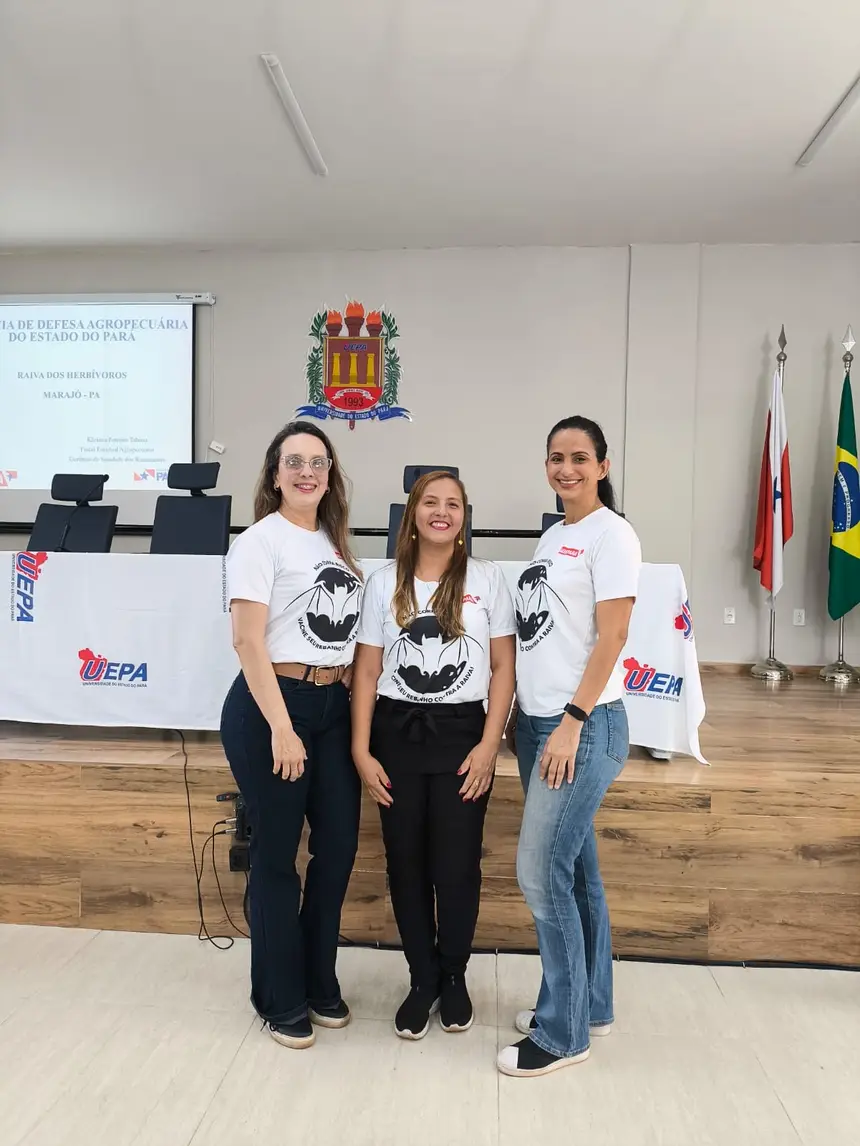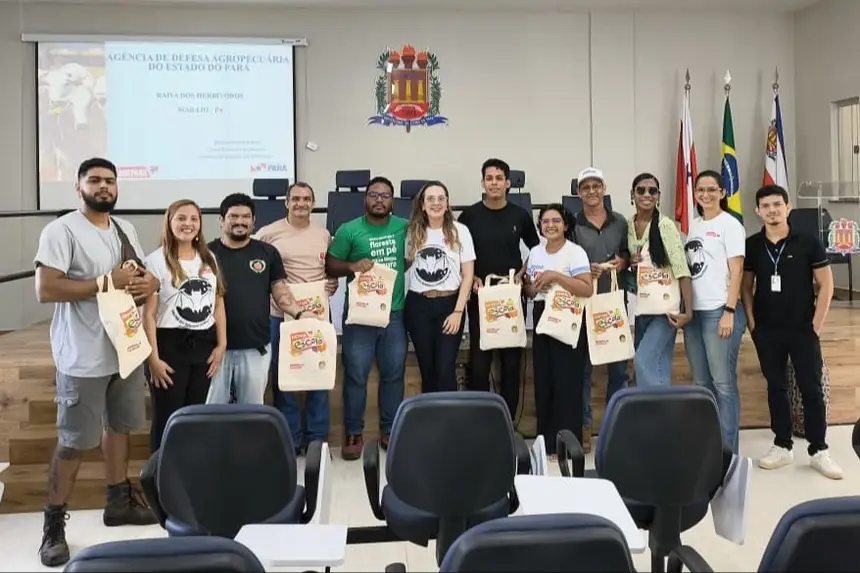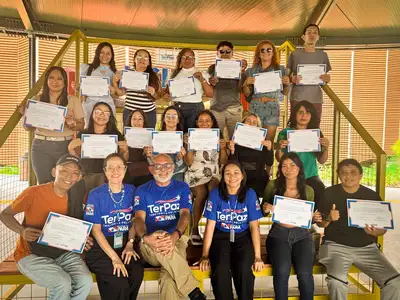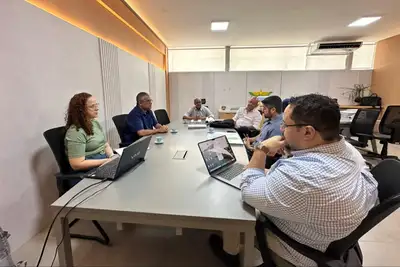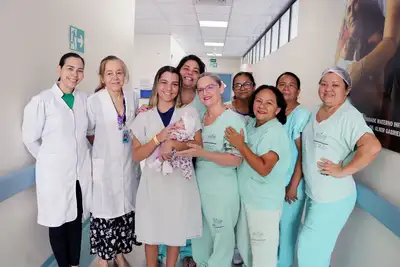Adepará promotes educational actions during the Week of Combatting Rabies in Herbivores
From September 22 to 26, veterinarians from the Defense Agency carried out a program to raise awareness among the population about the risks of zoonosis
Lectures, dynamics, playful activities, and mobilization marked the Week of Combatting Rabies in Herbivores, promoted by the Agricultural Defense Agency of the State of Pará (Adepará) during the last week, in agricultural hubs in the State. In 2025, Adepará concentrated its actions in the Marajó Archipelago, specifically in the municipalities of Cachoeira do Arari, Soure, and Salvaterra, which reported cases of the disease in herbivores in 2024 and 2025. Educational activities were also carried out in the Lower Amazon Integration Region, in western Pará.
In Cachoeira do Arari, the actions were aimed at students from the State School Delgado Leão; in Salvaterra, at the State Technical School of Pará (EETEPA), directed towards students of the technical course in Veterinary Medicine and university students from the Campus of the State University of Pará (Uepa), and in Soure, the actions included students from the Edda S. Gonçalves School and the technical course in Nursing at EETEPA.
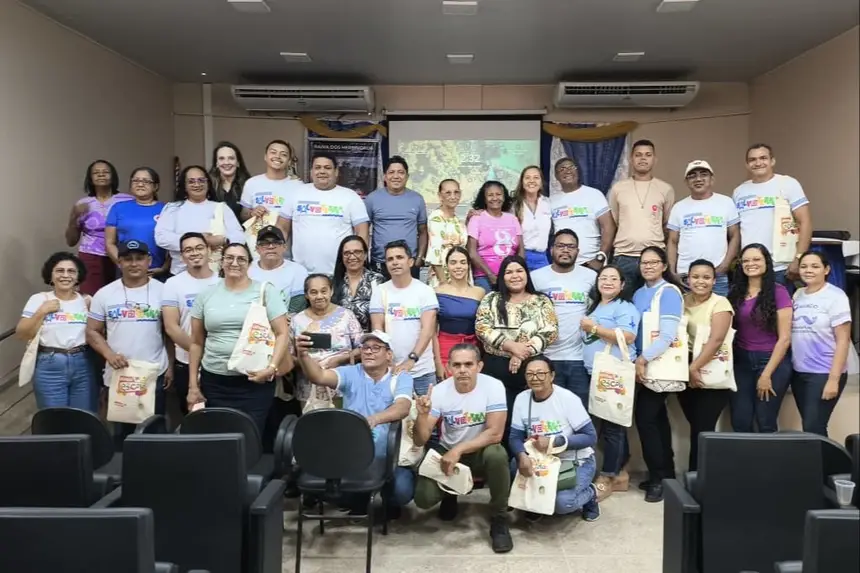
“The Week of Combatting Rabies is a call for prevention and the unity of all for a single health. This joint work with producers, institutions, and communities strengthens surveillance and ensures quicker and more effective responses against this highly serious zoonosis,” emphasized Graziela Oliveira, director of Animal Defense and Inspection at Adepará.
Playful approach - In Mojuí dos Campos, a municipality in the Lower Amazon, veterinarian Anderson Carvalho de Farias from the Defense Agency explained to 40 students from the Municipal School Maria do Carmo Félix da Silva how the disease is transmitted by hematophagous bats (which feed on blood) and highlighted the importance of vaccinating both production animals and pets.
“We approached the subject in a very playful way, so that students can understand the importance of the topic and know that there is control and combat against the disease, mainly through vaccination. Besides protecting Pará's livestock, it is a protection for single health, that is, human, environmental, and animal health,” stressed the veterinarian.
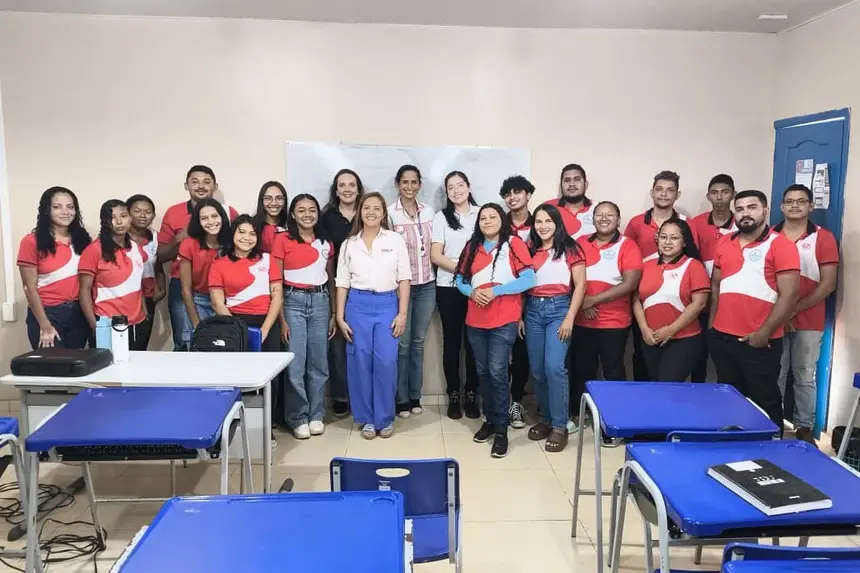
World Day - The period chosen for the action coincided with World Rabies Day, established by the Global Alliance for Rabies Control (Garc) and recognized by the World Health Organization (WHO), in order to promote the fight against the disease, raise awareness about prevention, and celebrate achievements.
According to Krishna Tabosa, state agricultural inspector of the Ruminant Health Management (Gesar) and focal point of the State Program for Rabies Control in Herbivores, this was the 4th consecutive year that Adepará promoted prevention actions against the disease in the period leading up to World Rabies Day - September 28.
“Such action is aimed at raising awareness of the risks involved with rabies in herbivores (cattle, buffalo, horses, donkeys, sheep, and goats), its prevention and control, through the mobilization of students, community health agents, and the general population,” informed the veterinarian.
Risks and care - Rabies is a serious zoonosis present on all continents, affecting more than 150 countries. In humans, its lethality approaches 100%. Transmission occurs mainly through contact with the saliva of infected animals, primarily due to bites, and less frequently through scratches and licking on broken skin or mucous membranes. It is a disease with well-established care protocols, which, if strictly followed, are effective for protecting people.
In Brazil, the disease is endemic in rural areas, as production animals and wild animals are regularly affected. The most evident clinical signs are motor incoordination, prostration, limb paralysis, paddling movements, and an extended neck, followed by death.
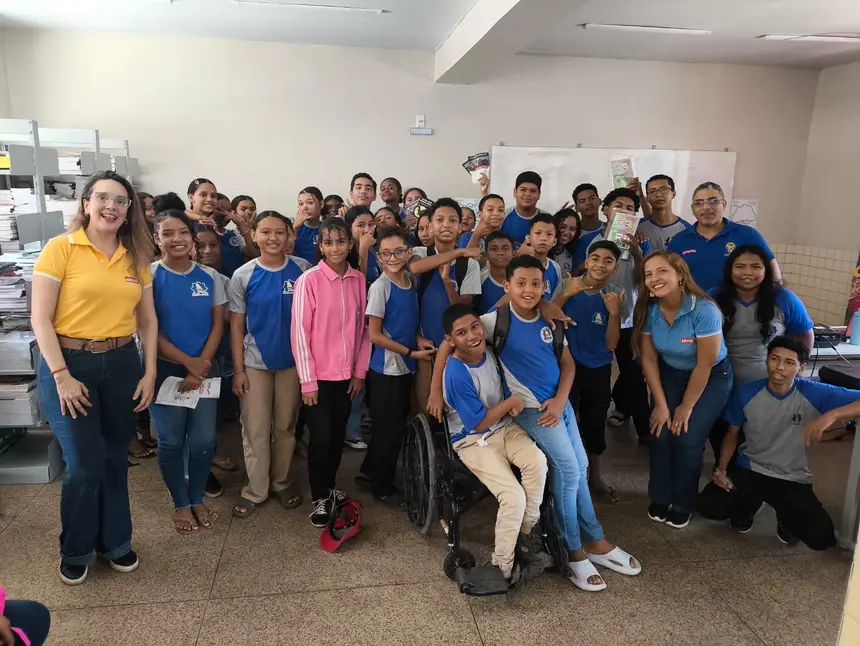
Sanitary education - Education is a fundamental tool for transforming knowledge into action. “It not only disseminates information but also awakens the critical consciousness of society, strengthening the understanding that the prevention and control of diseases in agriculture depend on collective engagement,” said Adriane Moraes, veterinarian who coordinated the educational actions in Marajó.
By raising awareness and preparing the public, sanitary education promotes co-responsibility among producers, consumers, students, institutions, and the community at large, creating a culture of vigilance. “More than a process of guidance, it is a practice of joint construction, capable of generating attitude changes and valuing single health,” emphasized Alexandre Mendes, manager of Sanitary Education at Adepará.
Adepará advises producers, health agents, and the community to remain alert to the suspicion of the disease, immediately reporting to the Agency about production animals showing clinical signs of the disease, through the website https://www.adepara.pa.gov.br, in person at the Adepará Office, or accessing e-SISBRAVET - https://sistemasweb4.agricultura.gov.br/sisbravet/manterNotificacao!abrirFormInternet.action


